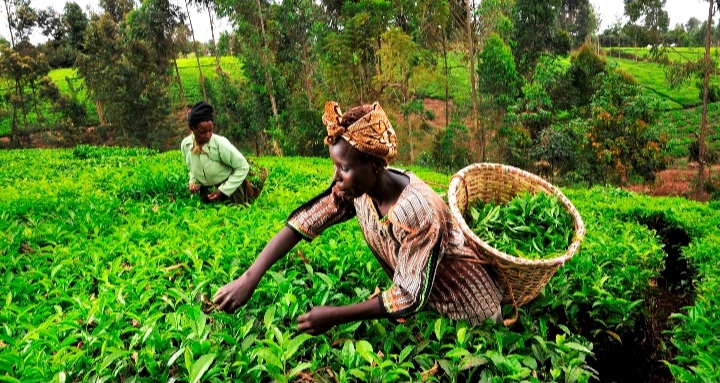Agric ministry trains women farmers on climate change mitigation

The Federal Ministry of Agriculture and Rural Development, has trained South East women farmers on climate change mitigation and adaptation strategies in gender mainstreaming.
Mrs Eno Olotu, Deputy Director, Information, Federal Ministry of Agriculture and Rural Development, made this known in a statement on Monday, in Abuja.
Olotu quoted the Minister of Agriculture and Rural Development, Dr Mohammad Abubakar, as saying that the training would help the women farmers to build and enhance their resilience to threats and impacts of climate in agricultural production.
He said this at the 4th edition of the South-East regional workshop on Gender Mainstreaming, Climate Change Mitigation and Adaptation Strategies for Women Farmers on Monday in Imo.
The minister, who was represented by the Imo State Director in the ministry, Pastor Chris Iwuchukwu, explained that the policy thrust of the 2019 National Gender Policy was ” hinged on gender equity and equality for optimum productivity in the agricultural sector”.
Abubakar said that the 2019 approved National Gender Policy thrust was to achieve gender based reforms that cuts across all value chains of the agricultural sector.
“This ultimately will ensure commitment to gender mainstreaming at all levels of the agricultural sector, which is seen as a tool for achieving gender-based reforms and increasing productivity by men and women along all the value chains in the sector.
” Nigeria’s agriculture is most vulnerable and susceptible to the impacts of climate change. Indeed, it is rain-fed dependent.
” Any change in the weather pattern, in terms of the amount, intensity, duration, and the on-set, duration affect farmers decisions on when, what and where of the crops and inputs as well as other cultural operations in the value chain,” he said..
According to him, climate change and variability affects particularly women who constitute the most vulnerable among the farming communities.
“Available statistics indicate that women constitute about 80 per cent of the labour force involved in agricultural production, grow up to 80 per cent of the food in Nigeria.
“Overall, they constitute about 43 per cent of the agricultural labour force in developing countries. Yet, women farmers face various challenges and need especially climate change and variability, access to information and technologies,” he said.
Abubakar explained that the choice of Imo as one of the pioneer states to kick-start the series of outlined workshops was because the state is one of the frontline states within the rainforest agro-ecological zones in Nigeria facing ecological challenges due to the impact of climate change.
He expressed optimism that the workshop would expose the participants to climate change adaptation and mitigation strategies that would help to build and enhance their resilience to threats and impacts of climate in agricultural production.
In his remarks, the Commissioner of Agriculture and Natural Resources in Imo, Dr Okorochukwu Barthy, said that the essence of the workshop for women farmers was to ensure increase in food sufficiency, which would in turn translate to food security and economic growth in the country.
The Director, Special Duties in the Federal Ministry of Agriculture, Mrs Fausat Lawal, recalled that the thrust of the National Gender Policy was to reduce the vulnerability of women in agriculture.
Lawal was represented by the Head, Gender Unit in the Ministry, Mrs Ifeoma Anyanwu.
The over 150 women from Imo, Abia, Enugu, Ebonyi and Anambra states, representing the South-East Geo Political Zone were given clean stoves stater packs.
